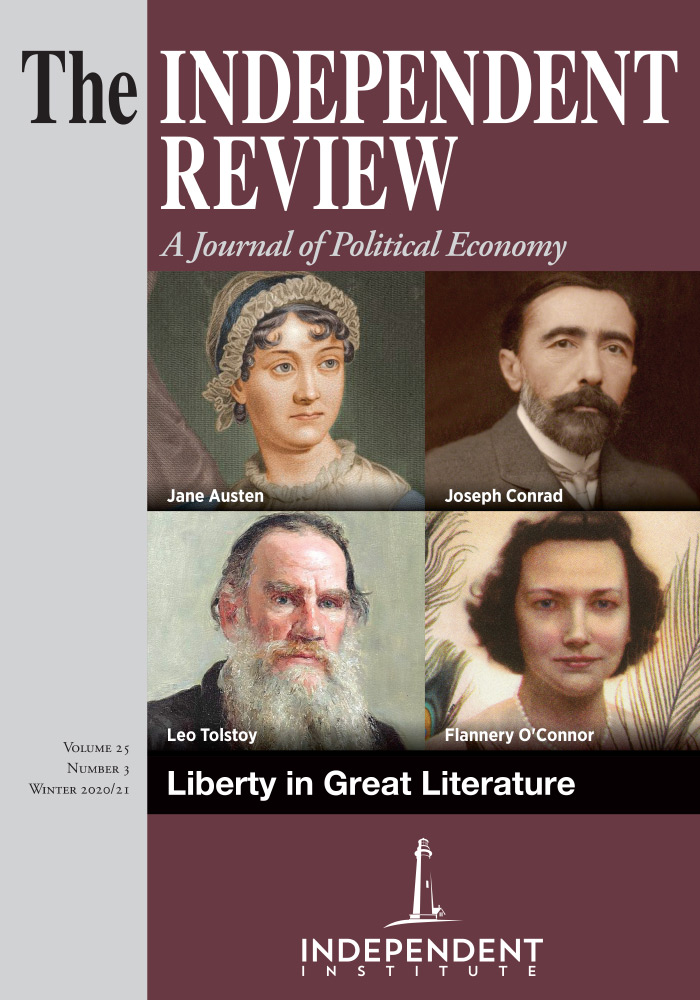Some critics hold that War and Peace (1867) is too disjointed to be considered a true literary masterpiece, but it is precisely its digressions into the philosophy of history that lift Tolstoy’s epic novel to the highest realms of contemplative discourse. Whereas sticklers for a straightforward narrative style may blame the side discussions about psychology and “Providence” for pulling readers out of the story, others laud these asides for adding layers of richness and meaning to Tolstoy’s tale of Napoleon’s invasion of Russia.
H. Geoffrey Brennan (1944–2022) was a professor of political science at Duke University and professor of philosophy at the University of North Carolina, Chapel Hill, and the Australian National University.
A.M.C. Waterman is a retired fellow at St. John’s College, Winnipeg and professor emeritus of economics at the University of Manitoba, Canada.
| Other Independent Review articles by H. Geoffrey Brennan | |
| Winter 2013/14 | The Soul of James Buchanan? |
| Other Independent Review articles by A.M.C. Waterman | |
| Winter 2019/20 | The Evolution of “Orthodoxy” in Economics: From Adam Smith to Paul Samuelson |
| Winter 2016/17 | Pope Francis on the Environmental Crisis |
| Winter 2002/03 | Economics, Love, and Family Values: Nancy Folbre and Jennifer Roback Morse on the Invisible Heart |










